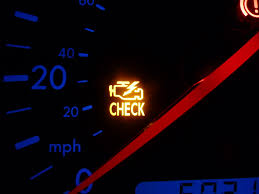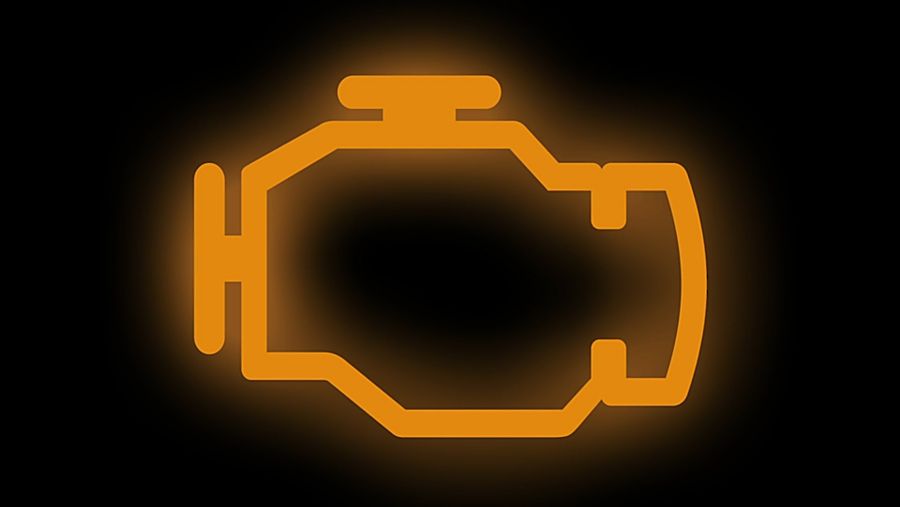
In the hustle and bustle of Houston life, it’s easy to dismiss the small things—especially when your car still seems to be running just fine. But one thing no driver should ever ignore is the check engine light. It might seem like a minor inconvenience, but this small dashboard indicator can be a warning of major trouble.
Let’s explore why this warning should never be overlooked, what it could mean, and how Houston drivers can stay ahead of costly repairs.
What Does the Check Engine Light Really Mean?
The check engine light (CEL) is part of your vehicle’s onboard diagnostics system. When it illuminates, it means the system has detected a problem. That issue could range from a loose gas cap to a serious engine malfunction. The key is: you won’t know how severe it is until it’s checked.
In modern vehicles, this light is connected to sensors that monitor engine performance, emissions systems, fuel systems, and other components. If any of these systems operate outside of their expected parameters, your check engine light will activate.
https://www.cruhtx.com/service/check-engine-light-houston
Common Reasons the Light Comes On
Here are a few common culprits behind a check engine warning:
- Loose or damaged gas cap: One of the simplest fixes. A faulty gas cap can cause fuel vapors to leak and trigger the light.
- Faulty oxygen sensor: This sensor monitors how much unburned oxygen is in the exhaust. If it fails, fuel economy can drop and emissions can increase.
- Malfunctioning catalytic converter: This component reduces harmful emissions. If it’s damaged, your car may fail an emissions test and run less efficiently.
- Worn-out spark plugs: Faulty plugs can reduce power and cause engine misfires.
- Mass airflow sensor issues: This sensor helps manage the air-fuel ratio. A problem can affect performance and fuel economy.

These are just a few examples—there are dozens of other reasons the light might activate.
Why You Shouldn’t Ignore It in Houston
1. Houston’s Heat Can Worsen Existing Problems
High temperatures can put extra stress on your engine. If there’s already an issue, like overheating or a failing cooling system, Houston’s summer heat could cause it to escalate fast. Ignoring a warning light in extreme weather can turn a minor issue into an engine failure.
2. You Might Fail an Emissions Test
Texas requires emissions testing in Harris County (which includes Houston). If your check engine light is on, you will automatically fail the inspection—even if your car seems to be driving just fine. That could mean registration delays and added repair costs.
3. You Risk Causing More Damage
One of the biggest reasons not to ignore the light is the potential for compounding damage. For example, a simple oxygen sensor issue can affect your catalytic converter, and replacing that is far more expensive than the sensor alone. The longer you wait, the more it might cost you in the long run.
4. It’s Not Always Obvious What’s Wrong
Unlike other dashboard warnings that show icons for oil or battery, the check engine light is vague. It could be something harmless—or something critical. Unless you scan the diagnostic trouble code (DTC), you’re driving blind.
What To Do When the Check Engine Light Comes On
Step 1: Don’t Panic
A solid check engine light usually means a non-urgent issue. If it’s flashing, however, it’s more serious—usually indicating an active misfire that could damage the catalytic converter. In that case, pull over safely and call for assistance.
Step 2: Check the Gas Cap
Believe it or not, a loose gas cap is a common cause. Make sure it’s tightened properly. If that was the issue, the light might turn off after a few drives.
Step 3: Schedule a Diagnostic Scan
Head to a repair shop or parts store that offers free OBD-II scans. The code will reveal what system is being affected. Even if the issue seems minor, it’s worth knowing for sure.
Preventative Maintenance: Your Best Defense
Staying on top of regular vehicle maintenance can help reduce the chance of check engine surprises. Here are a few habits that Houston drivers should follow:
- Get regular oil changes to protect engine health.
- Replace spark plugs and wires as recommended.
- Have your emissions system checked annually.
- Listen for unusual sounds and watch for changes in fuel economy.
The better you care for your car, the less likely you are to see that dreaded dashboard warning.
What a Flashing Light Means (Don’t Ignore This!)
If your check engine light is blinking, this is not a drill. A flashing light usually means a serious misfire that could overheat the catalytic converter or cause engine damage.
Stop driving immediately and seek help. Continuing to drive a vehicle in this condition can lead to thousands of dollars in repairs.
Real Talk: Don’t Delay
In a city like Houston, where daily commutes can be long and traffic conditions vary, car reliability is everything. Waiting days or weeks to address a check engine light might seem convenient—but it’s a gamble.
If your car suddenly loses power in the middle of I-45 or breaks down in sweltering heat on Beltway 8, you’ll wish you took action earlier. The peace of mind that comes from knowing your vehicle is in good condition is worth the time.
Final Thoughts
Your car’s check engine light is more than just a nuisance—it’s your car trying to communicate. Ignoring it might not affect your vehicle today, but it could cost you dearly tomorrow.
Whether you’re commuting to downtown, heading to the suburbs, or driving across Texas, staying proactive with your vehicle’s health ensures safety, reliability, and savings in the long run.
So next time that little orange light shows up on your dash, don’t ignore it. Get it checked. Your car—and your wallet—will thank you.



